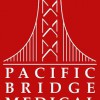
Using a gold-standard pharmacy dataset from the National Council for Prescription Drug Programs (NCPDP) and a transparent methodology, PCMA produces credible research with a clear conclusion: there are more independent pharmacies now than any time over the last decade. For America's pharmacy benefit managers, PBMs, our core mission is to increase access to affordable prescription drugs for all Americans.
Today, spending on biologic drugs makes up 43% of total drug spending. This is a growing area of new innovation for a multitude of therapeutic areas, and also an area of growing cost. For America's pharmacy benefit managers, PBMs, our mission is simple: increase affordable access to prescription drugs for everyone.
Today, spending on biologic drugs makes up 43% of total drug spending. This is a growing area of new innovation for a multitude of therapeutic areas, and also an area of growing cost. For America's pharmacy benefit managers, PBMs, our mission is simple: increase affordable access to prescription drugs for everyone.
Services
Rebates
Report
The Medicare Part D prescription drug benefit provides our nation's seniors with affordable drug coverage, which is more important now than ever. The rebate rule clumsily attempts to eliminate the primary tool used by pharmacy benefit managers, or PBMs, to negotiate increased access to affordable prescription drugs with drug manufacturers.
Managing Insulin Costs
Report
The insulin market is consolidated, hindering competition and limiting alternatives, leading to higher list prices on new and existing brand insulins. PBMs work hard to drive down costs using formulary management and rebates. Drug manufacturers have continued to increase insulin list prices, with total gross sales increasing from $22 billion in 2012 to $54 billion in 2019.
Rx Research Corner
Report
The Rx Research Corner is a blog written by the Research Team at PCMA. This blog will take a closer look at complex data and new research findings. Topics cover the PBM and prescription drug space and range from pricing, to policies, and to patient issues such as access and equity.
Using a gold-standard pharmacy dataset from the National Council for Prescription Drug Programs (NCPDP) and a transparent methodology, PCMA produces credible research with a clear conclusion: there are more independent pharmacies now than any time over the last decade.Paying pharmacies more for dispensing medications will raise prescription drug costs without improving value.
Using a gold-standard pharmacy dataset from the National Council for Prescription Drug Programs (NCPDP) and a transparent methodology, PCMA produces credible research with a clear conclusion: there are more independent pharmacies now than any time over the last decade.Paying pharmacies more for dispensing medications will raise prescription drug costs without improving value.
The Value of PBMs
Report
Pharmacy Benefit Managers (PBMs) are your advocates in the health care system, working to lower prescription drug costs for patients and payers across the country.
PBMs administer prescription drug plans for more than 266 million Americans who have health insurance from a variety of sponsors including: commercial health plans, self-insured employer plans, union plans, Medicare Part D plans, the Federal Employees Health Benefits Program (FEHBP), state government employee plans, managed Medicaid plans, and others.
PBMs administer prescription drug plans for more than 266 million Americans who have health insurance from a variety of sponsors including: commercial health plans, self-insured employer plans, union plans, Medicare Part D plans, the Federal Employees Health Benefits Program (FEHBP), state government employee plans, managed Medicaid plans, and others.
Reviews

Be the first to review Pharmaceutical Care Management Association.
Write a Review


